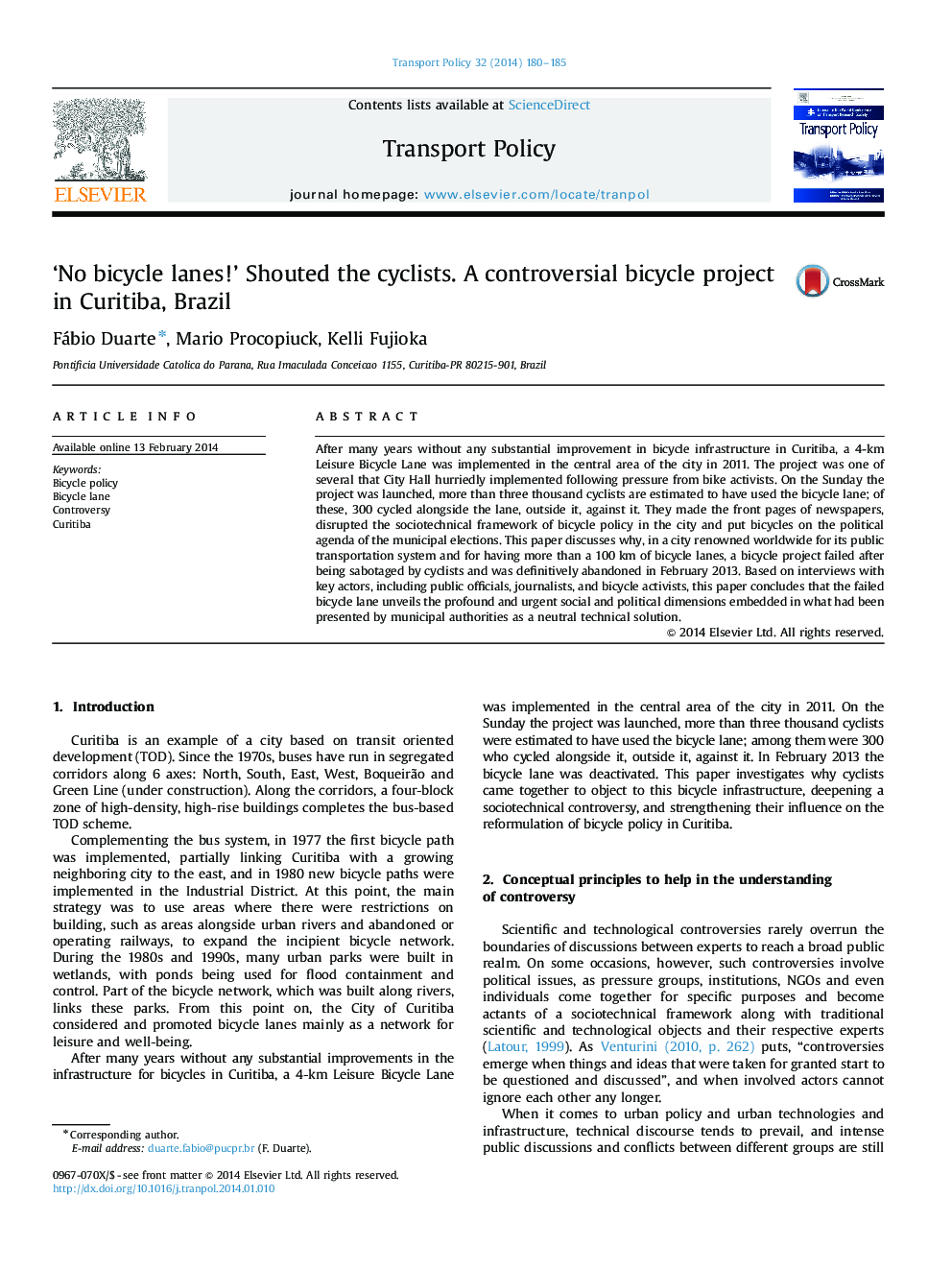| Article ID | Journal | Published Year | Pages | File Type |
|---|---|---|---|---|
| 7498029 | Transport Policy | 2014 | 6 Pages |
Abstract
After many years without any substantial improvement in bicycle infrastructure in Curitiba, a 4-km Leisure Bicycle Lane was implemented in the central area of the city in 2011. The project was one of several that City Hall hurriedly implemented following pressure from bike activists. On the Sunday the project was launched, more than three thousand cyclists are estimated to have used the bicycle lane; of these, 300 cycled alongside the lane, outside it, against it. They made the front pages of newspapers, disrupted the sociotechnical framework of bicycle policy in the city and put bicycles on the political agenda of the municipal elections. This paper discusses why, in a city renowned worldwide for its public transportation system and for having more than a 100Â km of bicycle lanes, a bicycle project failed after being sabotaged by cyclists and was definitively abandoned in February 2013. Based on interviews with key actors, including public officials, journalists, and bicycle activists, this paper concludes that the failed bicycle lane unveils the profound and urgent social and political dimensions embedded in what had been presented by municipal authorities as a neutral technical solution.
Keywords
Related Topics
Social Sciences and Humanities
Social Sciences
Geography, Planning and Development
Authors
Fábio Duarte, Mario Procopiuck, Kelli Fujioka,
